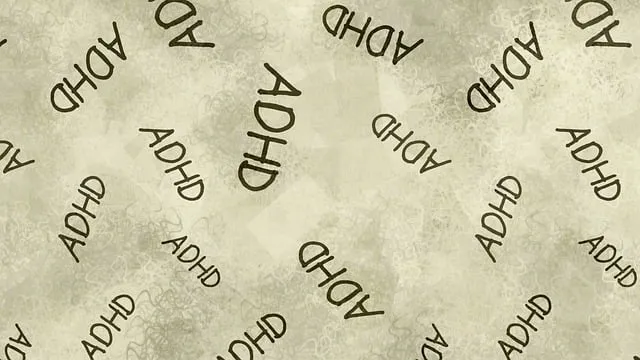Emotional Intelligence (EI) is a powerful tool for personal and professional growth, with Louisville's Kaiser Inpatient Mental Health Services leading the way in its development. Through journaling exercises, mindfulness practices, and empathetic community outreach, individuals enhance self-awareness, manage emotions, and improve stress resilience. Effective communication techniques, like active listening, build stronger connections. Kaiser's specialized programs offer tailored guidance for stress management and mental wellness, emphasizing continuous learning and best practices for professionals. Integrating simple EI practices into daily life can significantly contribute to overall well-being.
Emotional intelligence (EI) is a game-changer in navigating life’s challenges, fostering strong connections, and achieving success. This article, tailored for residents of Louisville or those interested in Kaiser’s inpatient mental health services, delves into the art of EI development. We explore key components like self-awareness, empathy, and communication strategies. By understanding these aspects, you can unlock your potential, enhance relationships, and lead a more fulfilling life, even if you’re facing mental health challenges, as Kaiser’s services demonstrate.
- Understanding Emotional Intelligence: Unlocking Its Potential
- The Role of Self-Awareness in Building Emotional Intelligence
- Enhancing Empathy: A Key Component of Emotional Intelligence
- Effective Communication Strategies for Better Emotional Connection
- Practical Tips to Integrate Emotional Intelligence into Daily Life
Understanding Emotional Intelligence: Unlocking Its Potential

Emotional intelligence (EI) is a powerful tool for personal and professional growth. At its core, EI involves recognizing, understanding, and managing one’s own emotions, as well as empathizing with and influencing the emotions of others. This ability to navigate and respond effectively to emotional situations can significantly impact various aspects of life, from improving mental wellness and fostering better relationships to enhancing performance at work.
In Louisville, for instance, organizations like Kaiser have recognized the importance of inpatient mental health services, highlighting the need for comprehensive emotional intelligence development. Through Mental Wellness Journaling Exercises and Guidance, individuals can cultivate self-awareness, a crucial component of EI. By regularly reflecting on their emotions and experiences, people can improve their ability to process and respond to stressors, leading to better decision-making and enhanced self-esteem. Additionally, practices focused on positive thinking can help individuals reframe negative thoughts, fostering a more optimistic outlook that supports overall emotional balance and resilience.
The Role of Self-Awareness in Building Emotional Intelligence

Emotional intelligence building begins with a strong foundation of self-awareness. Understanding your emotions and how they impact your thoughts and behaviors is crucial. Louisville’s Kaiser, for instance, offers inpatient mental health services, highlighting the importance of recognizing and managing one’s emotional states. This involves being mindful of both positive and negative feelings, as well as their underlying triggers. By cultivating self-awareness, individuals can better navigate challenging situations, fostering a sense of calm and clarity that enhances overall well-being.
Self-awareness also plays a pivotal role in preventing depression by empowering people to recognize early warning signs within themselves. Through practices like meditation and compassion cultivation, individuals learn to observe their emotional reactions without judgment, enabling them to develop coping skills for managing stress. This proactive approach not only helps in maintaining mental health but also fosters resilience, allowing one to navigate life’s ups and downs with greater ease.
Enhancing Empathy: A Key Component of Emotional Intelligence

Empathy, the ability to understand and share the feelings of another, is a cornerstone of emotional intelligence. Enhancing this skillset can significantly benefit individuals and communities alike. At Louisville’s Kaiser, for instance, inpatient mental health services not only provide crisis intervention guidance but also foster environments that encourage empathy development. Self-Awareness Exercises play a pivotal role in this process, allowing individuals to recognize and manage their emotions while acknowledging the feelings of those around them.
Community Outreach Program Implementation is another effective strategy to boost empathy. By engaging with diverse populations and learning about their experiences, people can develop a deeper understanding of the emotional challenges faced by others. This not only broadens perspectives but also strengthens interpersonal connections, making it easier to offer support during times of crisis.
Effective Communication Strategies for Better Emotional Connection

Effective communication is a cornerstone of building emotional intelligence and fostering strong connections with others. Louisville’s Kaiser, for instance, offers inpatient mental health services that highlight this crucial aspect of care. In the context of mental health professional practice, open and honest dialogue allows individuals to express their feelings, fears, and aspirations. By actively listening and responding empathetically, practitioners can create a safe space where clients feel understood and valued. This not only enhances therapy sessions but also translates into better patient outcomes.
Embracing various communication strategies such as active listening, clear and concise language, and non-verbal cues like eye contact and body language helps in building rapport and trust. Mental health professionals can further enhance their skills through risk management planning, ensuring they are equipped to handle sensitive information and maintain confidentiality. Additionally, engaging in continuous learning through mental health policy analysis and advocacy ensures that practitioners stay updated on best practices and advocate for policies that support emotional well-being. Boosting confidence also plays a vital role; when professionals feel assured in their communication abilities, they can more effectively connect with clients, leading to stronger therapeutic alliances.
Practical Tips to Integrate Emotional Intelligence into Daily Life

Building emotional intelligence (EI) is a continuous process that requires consistent effort and practice. Luckily, integrating EI into your daily life doesn’t have to be complex or time-consuming. Start by cultivating self-awareness—take a few moments each day to reflect on your emotions and how they influence your thoughts and actions. This can be as simple as journaling your feelings or practicing mindfulness exercises like deep breathing or meditation.
Additionally, prioritize active listening when interacting with others. Give your full attention during conversations, maintain eye contact, and paraphrase what you hear to ensure understanding. Engaging in open dialogues not only strengthens relationships but also fosters a sense of belonging and support—crucial components for managing stress and preventing crises. For those seeking more intensive guidance, Louisville’s Kaiser Inpatient Mental Health services offer specialized Crisis Intervention Guidance tailored to enhancing mental wellness and boosting confidence.
Emotional intelligence, a powerful tool for personal and professional growth, is within reach for all. By cultivating self-awareness, enhancing empathy, and adopting effective communication strategies, individuals can significantly improve their emotional connections and overall well-being. Louisville’s Kaiser facility offers valuable resources for those seeking support, demonstrating that access to inpatient mental health services can play a pivotal role in the journey of emotional intelligence building. Integrating these practices into daily life encourages a more mindful and compassionate approach, ultimately fostering healthier relationships and a greater sense of fulfillment.






